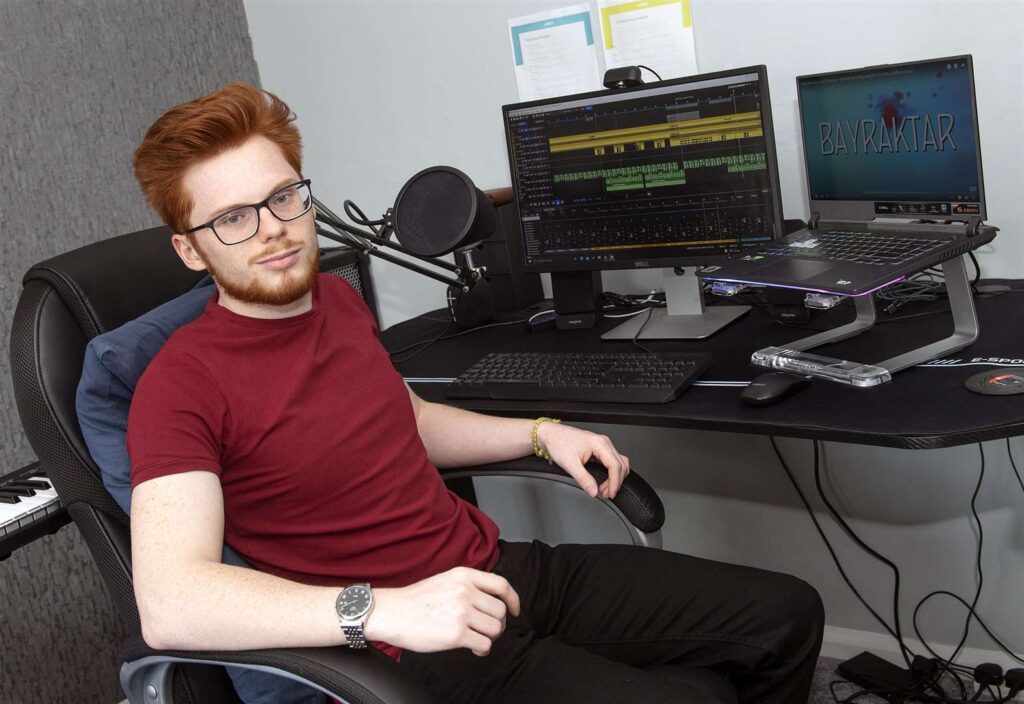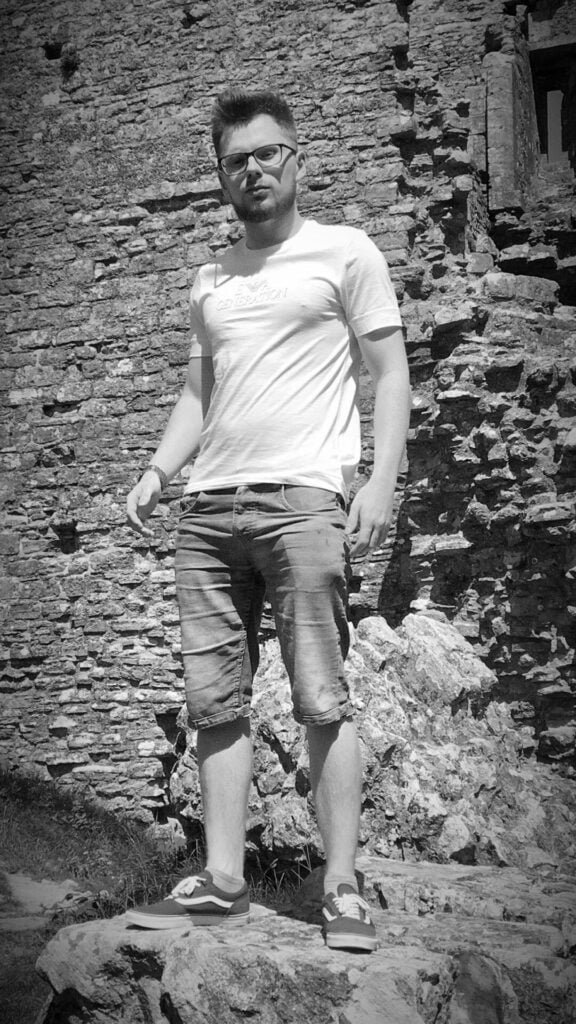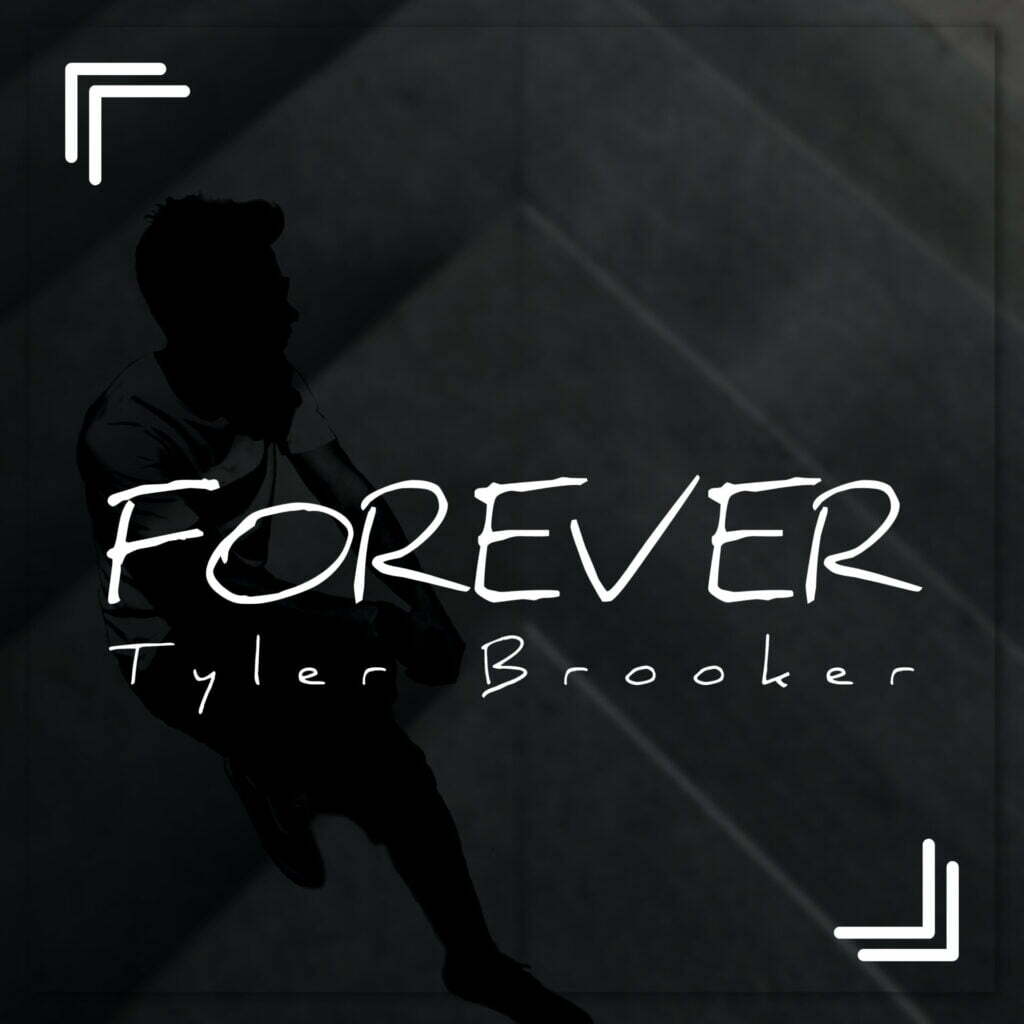UK native Tyler Brooker creates massive electronic, house, and dance music for everyone to enjoy.
He began creating dance and electronic music in January 2017 while enrolled in sixth-form college (first year), using a DAW called Mixcraft 8. He only uploaded his work to YouTube and SoundCloud. He persisted in his commitment, and eventually people began to pay attention. As a result, he was able to receive feedback to improve his sound. He finally had the confidence to release his first track, Rush, to well-known platforms like Spotify back in January 2018 after releasing numerous originals and remixes. In 2018, he began attending college.
He has since produced EDM and house music on a regular basis, garnering radio and podcast plays, interviews on BBC Radio Essex and BBC Radio Suffolk, and increased attention across multiple platforms. He helped found the university’s Music Recording and Production Society, where he participated as a society member and mentored aspiring producers. In May 2019, he released my debut EP, Absolute. He has created more than 150 original tracks and remixes, as well as collaborated with over 15 incredible musicians. His remix of Bayraktar with Lisa Schettner reached the Official Ukrainian Charts, which is incredible considering that all proceeds from the song go to the British Red Cross to aid Ukrainian victims.
He tries his best to offer insightful criticism and to steer people in the right direction because he wants to see every diligent artist succeed. Check out the latest single & the exclusive interview below:

1. Can you tell us a bit about where you come from and how you got started?
TYLER BROOKER: I come from a region of the UK called Suffolk, and I’ve lived here all my life, although I did briefly move out while I was at uni. Everything started for me when I first began learning how to play the guitar at age 10, then at age 14 I started learning bass guitar for my band at the time. I became more and more interested in electronic music, so when I was 14 I started using Apple’s Garagaband on my iPad to make music. Later, I would find a Windows DAW called Mixcraft 5 which I would also use. I would just make whatever I thought sounded cool, dragging loops from the DAW libraries into the program and seeing what worked. I had no knowledge of synths or mixing and mastering until much later.
2. Did you have any formal training or are you self-taught?
TYLER BROOKER: As mentioned, it started with guitar lessons, but when I was in year 10 I did music as one of my GCSEs for two years, then at college I did music technology for two years, which is where things really started to take off. My college had a recording studio with Logic Pro X, and I would often stay after school to do my own stuff while also keeping up with the curriculum. While I was at uni, I helped form a society called the Music Recording & Production Society, where I would help teach students the basics of music production. I did teach myself how to play the keyboard, but most of my knowledge stems from my academic life. I don’t think I could thank some of my teachers enough for what they taught me.
3. Who were your first and strongest musical influences and why the name ‘TYLER BROOKER:’?
TYLER BROOKER: My strongest influences include artists such as Diplo, Tiesto, R3HAB, KSHMR, Knife Party, Avicii, Nom de Strip and MDK, plus many others. On car journeys, I remember listening to artists like David Guetta, Calvin Harris, Avicii and Swedish House Mafia on the radio a lot before I discovered the online space and found the above artists that I would fall in love with. I chose my real name rather than an artist name as a lot of other artists have done the same, and my ability to produce music isn’t a character; it is all me.
4. What do you feel are the key elements in your music that should resonate with listeners, and how would you personally describe your sound?
TYLER BROOKER: My music is all about high-energy, adrenaline-filled dance with the power to shake the room, the kind of music that you could run endlessly to, or life the heaviest weights to, or just vibe to in your room or in your car. That energy comes from melodic synths, fast paced beats, four-to-the-floor house beats and gritty sounds that my ears can’t get enough of. If my listeners have that same energy, then I can see them resonating with my music. Some of my work is more relaxed and atmospheric but still upbeat, such as the Saint remix, or Forever.

TYLER BROOKER:
When I first started, it was always interesting electronic sounding ideas that I would spend lots of time experimenting with, often inspired by big room EDM or house I would hear on the radio or on Spotify. It was pretty easy to come up with a house beat, even if it wasn’t mixed very well, then building a melody came more naturally, so I would normally start with a good beat first since I could just loop over it and play melodic ideas along with it. My first EDM track, Show Me The Limit, is an example of my trying to create what I thought was big room EDM, as all the ideas were there – breakdown with chords and melody, build, drop with a sub-bass layer, etc. – but I clearly didn’t know how to do it properly. At the time I thought it was amazing, but I think every artist feels that way with their first tracks. I look at it now and I realize how bad it actually is, and that didn’t come until at least a year later. Slowly my style started improving when I would gain access to better samples and synths, listening to more music, and understanding more mixing techniques. It improved further when I started working with other artists who would mix in a different way. I think my style might be generic to some, but the energy and emotion is definitely recognizable as mine.
6. What’s your view on the role and function of music as political, cultural, spiritual, and/or social vehicles – and do you try and affront any of these themes in your work, or are you purely interested in music as an expression of technical artistry, personal narrative and entertainment?
TYLER BROOKER:
I see that music can have a huge place politically, such as in rap or rock music, and I have nothing against that, but my music does not share these themes; it’s mainly a feel-good, motivating theme that demonstrates the energy and electric emotion I can provide to my music. Having said that, recently I produced a mashup track of a famous Ukrainian song Bayraktar with artists Lisa Schettner and Taras Borovok, to raise money in order to aid Ukrainian victims. The song has reached over 80k views on YouTube and has given myself and Lisa newspaper publishing. It’s really exciting to create a track like that about a serious political topic and watch it grow so successfully while also helping people who need it.
7. Do you feel that your music is giving you back just as much fulfilment as the amount of work you are putting into it, or are you expecting something more, or different in the future?
TYLER BROOKER:
It has been hard for me to gain traction as a musician, especially on YouTube – it seems as if the YouTube algorithm does not favor musicians, and getting into Spotify playlists isn’t easy either. I spend a little time each day promoting myself to playlisting sites, labels, publishing sites and other areas that can help me, but it isn’t always fruitful. There will always be someone with more money and more time who can pay for their success. It also doesn’t help that I’m quite greedy for success and I never feel like I’m doing enough, even if I’ve done more today than what most people would do in a week. Regardless, I never stop trying, because that’s all I can do. I’m still very grateful for the people that listen to my music and interact with me. Sometimes just receiving a message from a stranger telling me that they enjoy my music is all I need to keep me going.
8. Could you describe your creative processes? How do usually start, and go about shaping ideas into a completed song? Do you usually start with a tune, a beat, or a narrative in your head? And do you collaborate with others in this process?
TYLER BROOKER:
I always start by listening to music that inspires me. If I want to make a new slap house track, I will listen to a lot of slap house, paying attention to the key, chords, sound design, vocals, the overall mix, etc. I’ll then hop into Mixcraft and start creating a beat. I always start with the drop before working on anything else, as this is like the ‘main course’ of the track, the foundations, and if it doesn’t work, I don’t think there’s much point continuing with the project. I do end up with a lot of scrapped projects! If I create a drop with a melody, bass and beat that works well, I move everything in the project so I can start working on the structure – intro, breakdown, build, etc. Occasionally I’ll share snippets with other producers to get their opinions. Once all the main elements are there, the noise and effects come in, then the vocals get their turn to be mixed. When the track is finished, I’ll ask producers for their opinion on the overall mix, then if it’s good I’ll go and master it, then it’s ready for distribution! Of course, once the track is done, the focus shifts more onto the artwork and the promotion side of things.
9. What has been the most difficult thing you’ve had to endure in your life or music career so far?
TYLER BROOKER:
As I mentioned before, I find it difficult to deal with a project that was worked on for several weeks, only for it to not be fruitful. The reason being is that it makes me feel as if I do not have enough support from people around me, but what’s also difficult is that I’m made to feel like it’s always my fault for not doing ‘enough’. Sometimes it becomes scarily easy to give up after years of production with little success, but that’s only because I fail to reflect on the things I have actually achieved. I’m surrounded by the people I aspire to be like on my social media, and I see what they do, and I wonder why I’m not there yet. Is it my fault? Am I not good enough? How hard do I need to work? These questions can be a plague for some, but ultimately they are not a reason to give up – they should push you forward even further. It really is just a case of sticking to it, talking to the right people, and one day, you’ll get it. You know that giving up isn’t an option, even if there’s a voice telling you that ‘it’s okay, you don’t have to do anything today, just relax’ – when you start relaxing and getting comfortable with where you are, you won’t make progress. It’s hard, but we get up and work harder.
10. On the contrary, what would you consider a successful, proud or significant point in your life or music career so far?
TYLER BROOKER: I remember one day sitting in the cafe at my university in 2019 and receiving an email out of the blue from a BBC presenter, saying that they had recently enjoyed my mixes played on the show BBC Introducing, and they wanted me to come to the studio for a twenty-minute interview. I hadn’t spoken to anyone about having an interview, so when I saw that I was incredibly excited. A few days later, I took the train to the studio, had the interview, met some of the staff members, and came back to my uni flat. It was incredible. I finally had my first interview on a major network in my country, which was the first major achievement in my production career, something I could bring up when talking to other networks who wanted musicians with some credibility. It opened my eyes to what I could reach if I really wanted it.
KEEP IN TOUCH:
FACEBOOK | INSTAGRAM | TWITTER | SPOTIFY | WEBSITE | YOUTUBE

Photo credits: Mecha Morton

